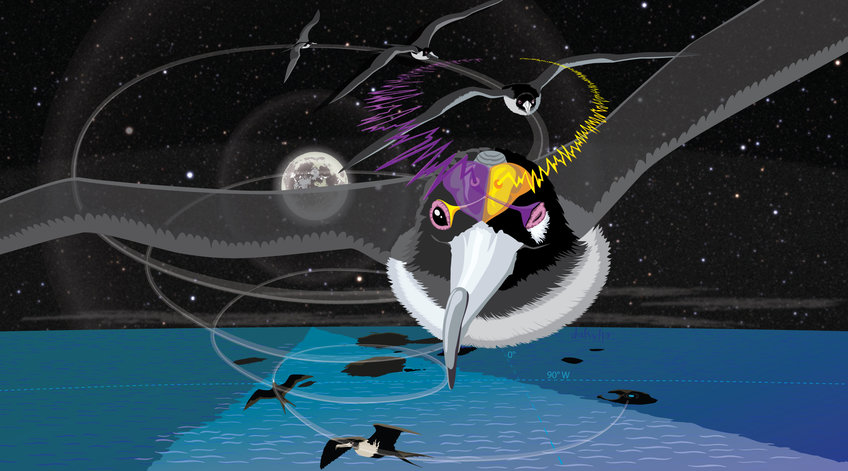
Avian Sleep
Our group investigates the evolution and functions of sleep through studying birds. Birds are a particularly interesting taxonomic group because they exhibit sleep states neurophysiologically and behaviourally similar in many, but, importantly, not all respects to mammalian rapid eye movement (REM) and non-REM sleep. Our work aims to gain a greater understanding of these states through examining both the similarities and differences between avian and mammalian sleep-related brain activity. We use high-density electrode arrays and telemetry to simultaneously record from multiple brain regions during natural sleep, and thereby gain a more global perspective of how the avian brain operates as a system during sleep.
Another major aim of our group is to investigate if and how birds sleep when faced with ecological circumstances that seemingly require sustained wakefulness. Here, we are pioneering the use of electroencephalogram (EEG) data-loggers in the wild. For example, we recently demonstrated for the first time that birds can sleep in flight. Specifically, we found that great frigatebirds (Fregata minor) flying over the ocean usually slept with one brain hemisphere at a time, but could also sleep with both hemispheres at the same time. Surprisingly, despite being able to engage in all types of sleep in flight, frigatebirds actually slept remarkably little on the wing – less than an hour per day for up to 10 days. Interestingly, the ability to perform adaptively in the real world on little sleep exhibited by frigatebirds was foreshadowed by our earlier study with Bart Kempenaers on adaptive sleeplessness in polygynous pectoral sandpipers (Calidris melanotos). Collectively, these findings are important because they run counter to the wealth of evidence from mammals demonstrating that adaptive waking performance depends on a far greater amount of sleep. Ultimately, determining how some birds maintain adaptive performance on little sleep may provide novel insight into the mechanisms underlying the adverse effect that sleep loss has on waking performance in other animals, including ourselves.